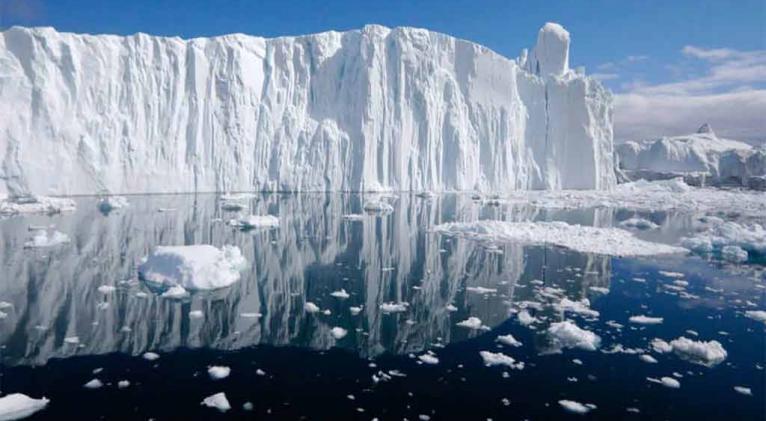Antarctic glaciers defreeze and gain greater mobility in summer
especiales

London, Feb 27 (Prensa Latina) Scientists from the English University of Leeds have shown that glaciers on the Antarctic coast gain 22 percent mobility in summer due to the warming of ocean waters, Nature Geoscience reported today.
On average, glaciers move about a kilometer a year, but the new study found a seasonal increase in speed of ice, which accelerates in summer, giving an idea of how climate change affects their behavior and the role they play in rising sea levels.
The Antarctic Peninsula is the largest reserve of frozen water on planet Earth, and it is estimated that between 1992 and 2017 meltwater from glaciers increased global sea level by about 7.6 millimeters.
The team of researchers analyzed more than 10,000 satellite images taken over this area between 2014 and 2021, and concluded how sensitive glaciers are to the environment.
He showed that the acceleration of glaciers occurs in summer, when the snow melts and the temperature of the waters of the Southern Ocean increases. Experts believe that the water from the melted snow acts as a lubricant between the ice sheet and the underlying rock, reducing friction and increasing the speed at which glaciers slide.
The Antarctic Peninsula is the northernmost and warmest region of Antarctica, has a thousand kilometers of mountainous backbone, similar to the length of the UK’s east coast, and is home to a rich marine ecosystem of seals, penguins and whales.
Along the west coast, glaciers drain the ice sheet directly into the Southern Ocean.
In the opinion of Dr Anna Hogg, associate professor at the Leeds Institute of Climate and Atmospheric Sciences and author of the article, the territory has experienced one of the fastest warming of any region on Earth.
Continuing work like this, she said, will help glaciologists monitor how quickly the changes occur, allowing them to accurately assess how Earth’s ice will respond to climate change.














Add new comment